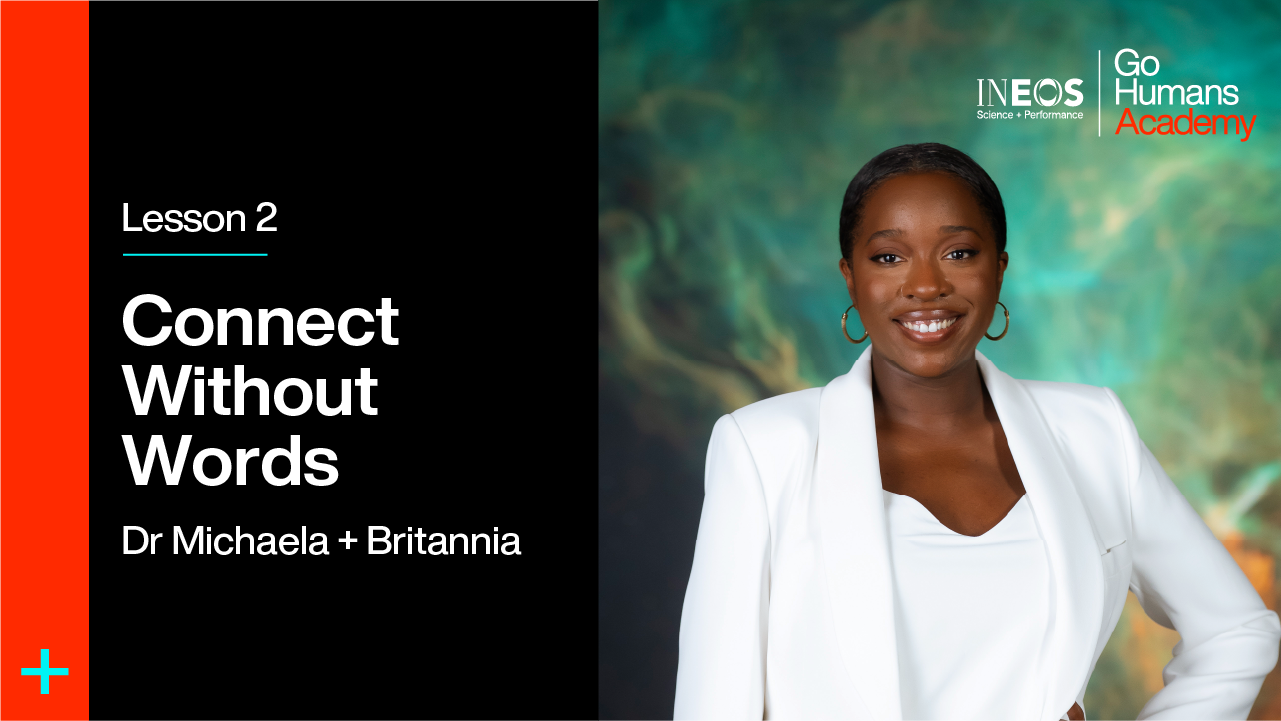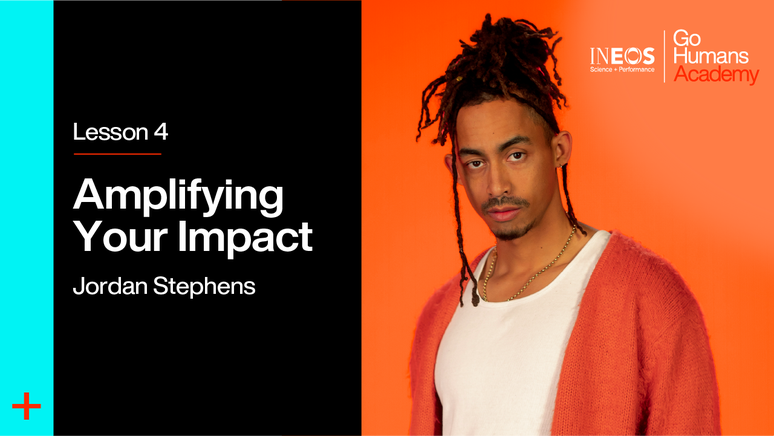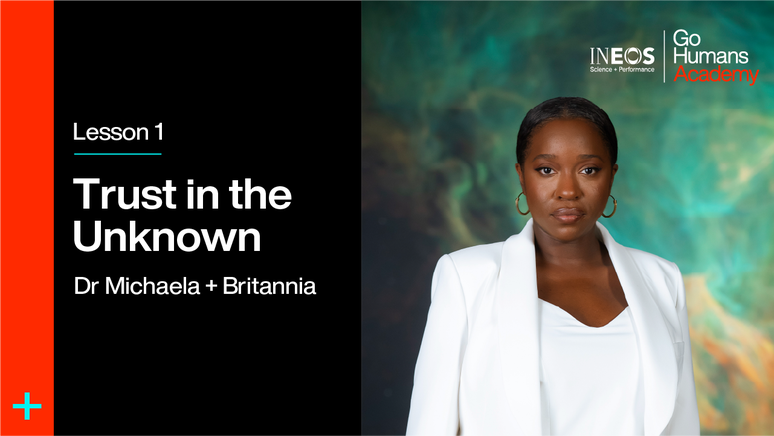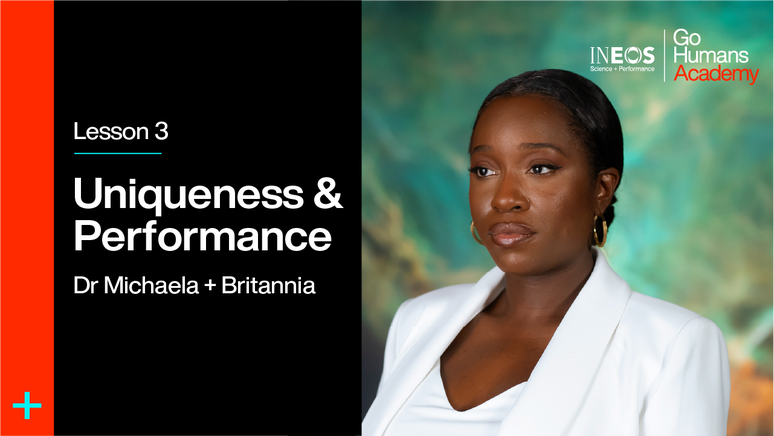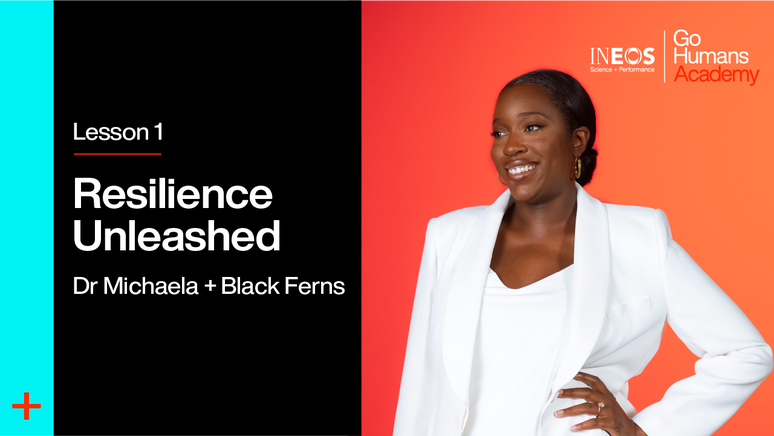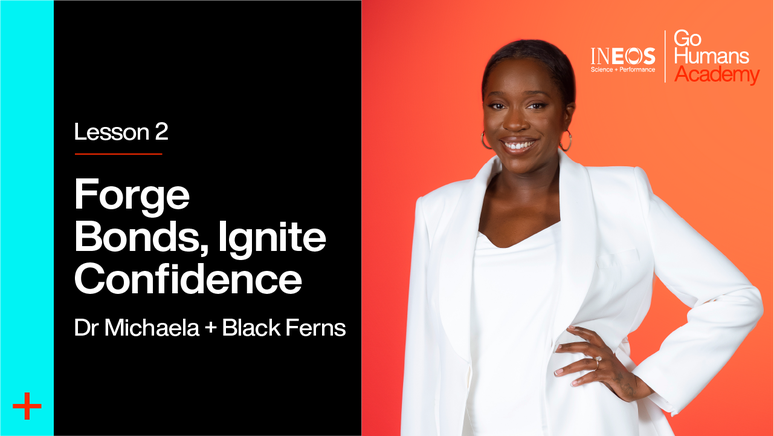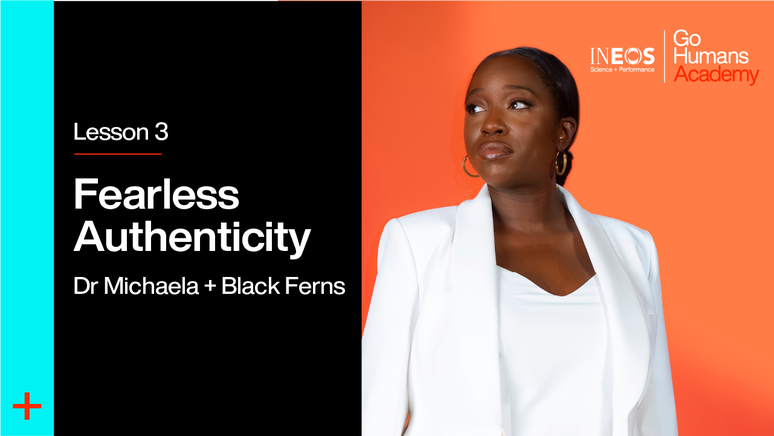Hi everyone, I'm Dr. Michaela, clinical psychologist and founder of My Easy Therapy.
I'm working with the INEOS Go Humans Academy to take a close look at belonging and exploring how creating strong relationships and connections can boost our emotional well-being.
Effective communication goes beyond words. It includes body language, tone and other nonverbal cues. Nonverbal communication can help us build trust and understanding a key part of effective teamwork.
To illustrate this, let's observe the INEOS Britannia sailing team.
We're going to start by looking at some exercises where a blindfolded teammate relies on verbal communication only.
Exercise
Now that we've taken a look at the team demonstrations, it's clear that non-verbal cues can strengthen our ability to understand each other and deepen our connections.
Confidence and self-perception can sometimes get in the way of us forming healthy relationships.
Unhelpful beliefs about ourselves or preconceived ideas about others, often stemming from our own previous history or trauma, can cause us to shut down with the fear we may say the wrong thing or behave inappropriately.
Our ability to self-regulate our emotions is crucial.
Unhelpful thoughts about ourselves can even trigger our threat or fight or flight response.
This is an automatic response which dates back to our ancient ancestors, which is evolved to help us deal with dangerous or life-threatening situations.
But in modern times, this same response occurs when we feel scared, frightened or out of control.
By recognizing these unhelpful thoughts before they overcome us, we can eventually train our brain to avoid a physiological response or panic attack.
If you can, establishing healthy and non-verbal cues like eye contact and body language can play an integral part in this process.
Here's some advice to leave you with.
- Unlock non-verbal cues. In a world dominated by words, never underestimate the power of non-verbal communication. Body language and tone can often tell us more than spoken word. Practice these so they become natural to you.
- Self-regulate. Learn to be more conscious of your feelings and reactions and try to enforce positive thoughts before negative feelings take control.
- Positive self-talk. Maintaining positive thoughts about yourself can help you feel calmer, more relaxed and open to creating healthier relationships.
Most importantly, remember to seek professional help if you need it.
If you're struggling, do not hesitate to reach out to a mental health professional.
They can provide immediate support to help you navigate your feelings and develop a stronger sense of self.
And don't forget to continue our sessions in the link below, or join the conversation using #GoHumansAcademy and head to ineoshygienics.com for more information and mental health resources.
